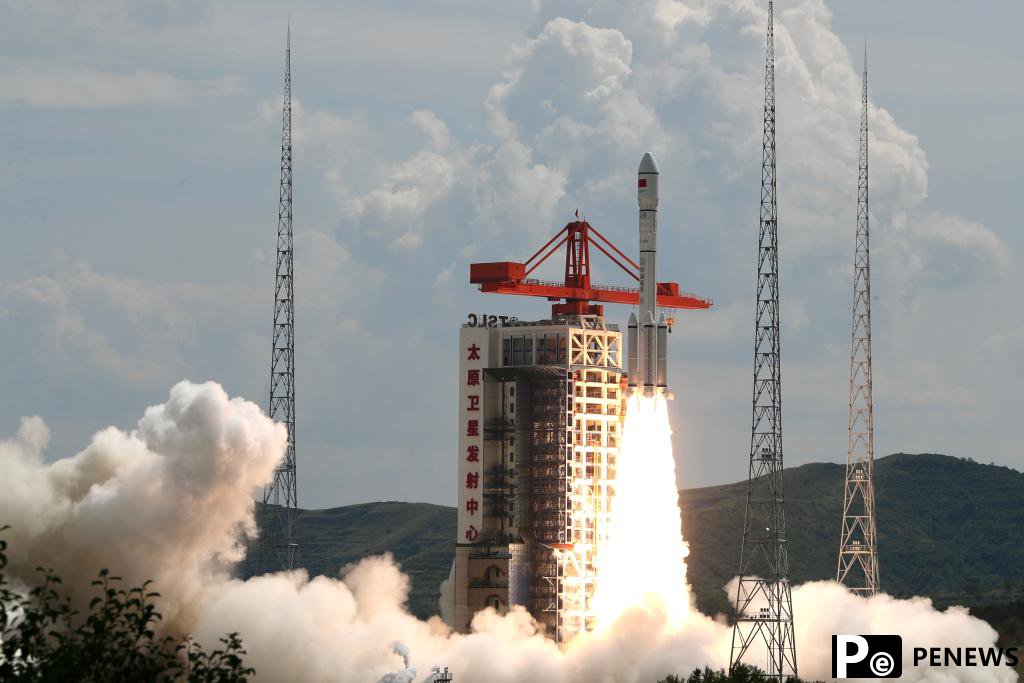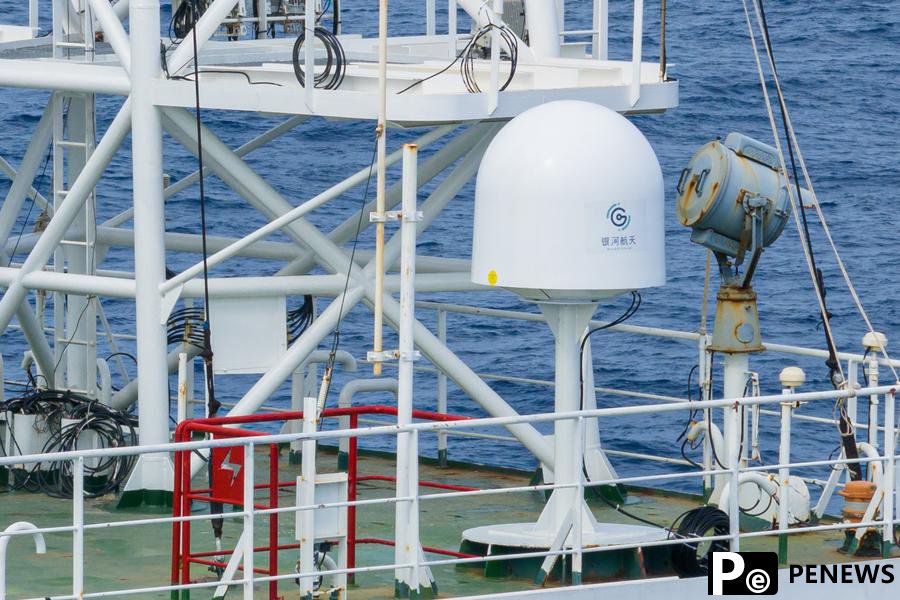Home>>
China's commercial space firms propel industrial upgrading via innovative cooperation(Xinhua) 09:25, August 14, 2024

A modified Long March-6 carrier rocket carrying a new satellite group blasts off from the Taiyuan Satellite Launch Center in north China's Shanxi Province on Aug. 6, 2024. (Photo by Zheng Bin/Xinhua)
BEIJING, Aug. 13 (Xinhua) -- Standing in front of a seemingly ordinary white aluminum-alloy frame, Xu Ying couldn't help feeling proud when saying that it leverages a manufacturing method that is usually applied in car manufacturing, namely integrated die-casting technology.
The frame served as the main platform of the Lingxi-03 satellite. This commercial satellite was made by Beijing-based space unicorn firm GalaxySpace, in cooperation with Changsha Hefeng wear-resistant material company, a private enterprise located in central China's Hunan Province, whose major business used to be the production of parts for railway equipment and automobiles.
"We put forward the design for the satellite, collaborated closely with Hefeng, and innovated together during the whole process," said Xu, general manager of public affairs at GalaxySpace, as she revealed more about the development process.
Established in 2018, GalaxySpace is a leading satellite internet solution provider and satellite manufacturer in China. It was also crowned as the first unicorn company in commercial aerospace in the country.
The rapid growth of the company underlines the effectiveness of China's push for developing the commercial space sector, as well as its broader policy efforts in fostering new quality productive forces.
The commercialization of China's aerospace sector started in 2014, when the country's State Council, in a guideline, encouraged private capital to participate in the construction of national civil space infrastructure.
In 2020, the National Development and Reform Commission, the country's economic planner, defined the scope of new infrastructure for the first time. Satellite internet was incorporated into the category of communication network infrastructure.
China's commercial space industry has experienced rapid growth in recent years, emerging as one of the new quality productive forces. The sector has been fostering the industrial ecosystem via cooperation with other industries, injecting fresh impetus for high-quality development in the country.
Similar to the cooperation between GalaxySpace and Hefeng, leading private enterprises in the commercial space sector are driving the commercial space supply chain toward innovation by tapping into the country's robust industrial manufacturing system.
"Our technicians worked together with employees from one of our suppliers when developing a product. They put in a lot of time and efforts to polish the product, make corrections and finalize product details," said Raymond Luo, general manager of supply chain at GalaxySpace.
In the early exploratory phase, this cooperation mode has the potential to be rather energy-consuming for both the company and its suppliers. However, once established, it can be used to develop other new products along supply chains, according to Luo.
By bringing onboard firms with strong industrial foundations and integrating them into the supply chain system, China's commercial space enterprises are seeking to create a cost-effective commercial mode to scale up satellite production, Luo said.
Meanwhile, through co-creating with supply chain partners, GalaxySpace has developed internal procurement technical regulations. These guidelines prioritize product design feasibility for low cost and mass production. To date, the company has signed over 20 procurement technical specifications with its suppliers.
This collaborative mode has opened up new business opportunities for traditional industrial firms and upgraded their production and processing capabilities.

This aerial photo taken on June 15, 2023 shows the internet terminal of low-Earth orbit satellites onboard the "Dian Ke No.1" comprehensive test ship. Researchers from the GalaxySpace, a Beijing-based satellite maker, and several scientific research institutions, conducted an open-sea testing of the country's first low-Earth orbit broadband communication test constellation in the South China Sea. (Xinhua)
The GalaxySpace supply chain network has now expanded to over 1,000 companies -- up from around 100 in 2018. Notably, more than half of these are private companies, and a significant proportion are small and medium-sized enterprises, data from the company showed.
GalaxySpace's cooperation with enterprises along the supply chain features a feedback mechanism that enables suppliers to provide suggestions and help the satellite manufacturer optimize its designs.
"One of our suppliers discovered a power- and time-consuming process while delivering our design. The supplier offered useful suggestions for improvement," Luo said, adding that the company now solicits and collects this kind of feedback, and adopts such advice if it proves conducive to boosting production efficiency.











